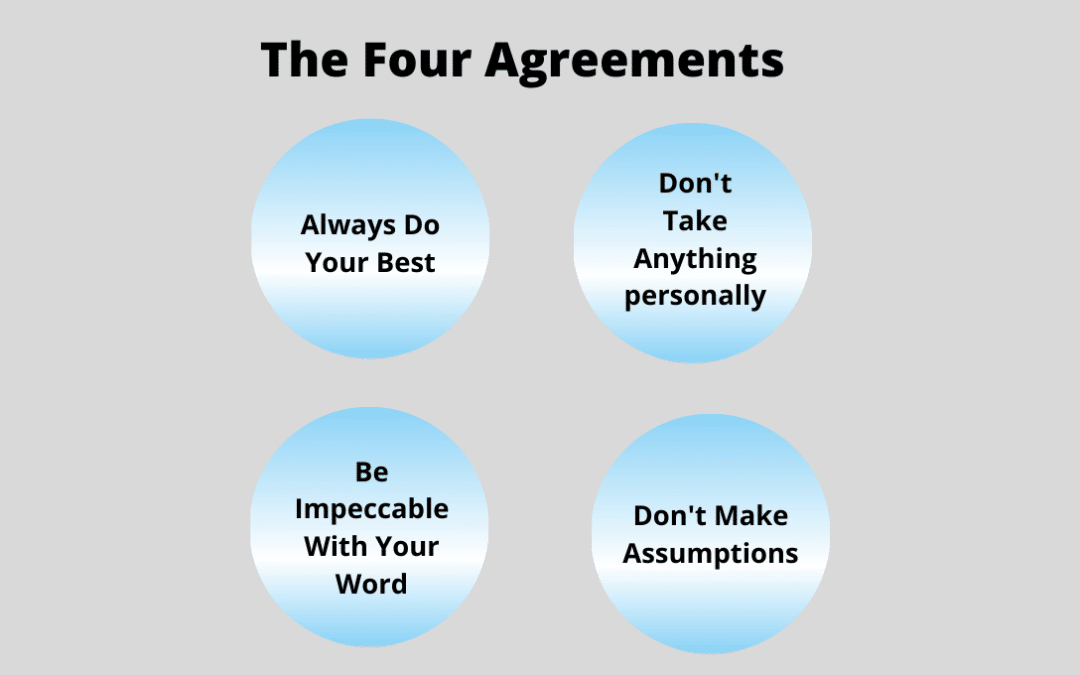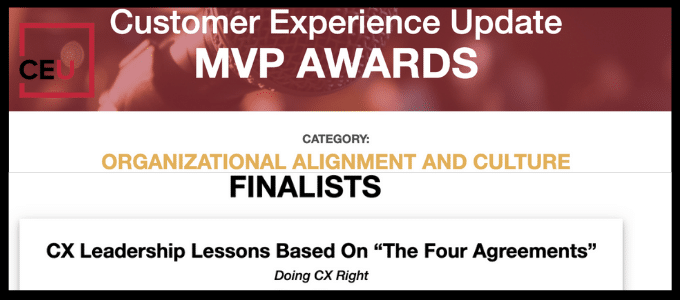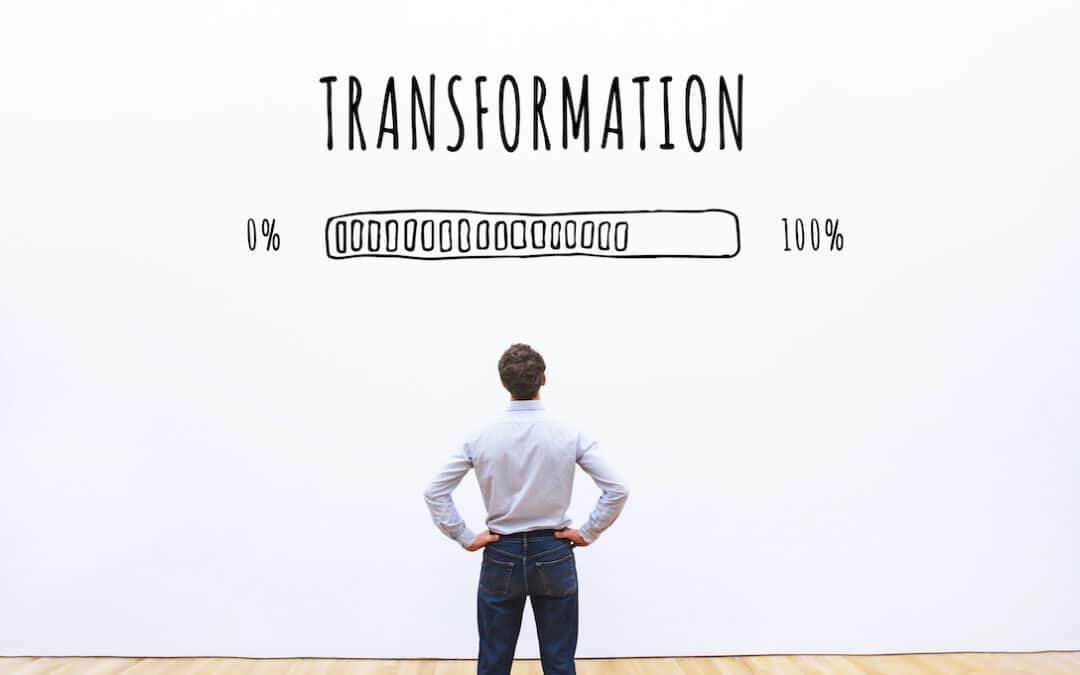
CX Leadership Lessons From “The Four Agreements”
Leadership Article Originally Featured in Forbes August 3, 2020
Many self-help books drive positive changes and personal growth. My all-time favorite is The Four Agreements by Don Miguel Ruiz. While listening to the audiobook, I had an epiphany as to why the book affects me more than any other. It reinforces how I live my life personally and correlates to my profession in the customer experience (CX) field.
From Ruiz’s four fundamental principles, I’ve drawn lessons on leadership, humanizing business, and creating satisfying experiences. I encourage you to read the agreements and apply the leadership principles to your life.
Agreement 1: Do Not Make Assumptions
We are all guilty of projecting what we think onto others. When we do not know all the facts, or when communication is unclear or nonexistent, it is human nature to make assumptions that are often wrong.
Misinterpretation is especially true when people email and text each other and inevitably insert their own beliefs about what the other person is thinking. Unfortunately, we tend to make assumptions that are negative and unsupportive.
From this first agreement, I believe we can apply three key lessons for improving customer experience:
• Pick up the phone. By doing so, you can avoid misinterpretation and useless arguments. Call your customers so they are not left guessing when there will be a resolution to their problems. Silence is not an option. Communication with your employees and customers helps avoid false assumptions and preserves relationships.
• Be transparent. People expect the facts even when the news is not what they want to hear. Communicate often and truthfully — it goes a long way.
• Ask customers what they need. There is no reason to guess. Interview and survey people, and incorporate their feedback into your product development process early on. Leverage voice of the customer (VoC) insights not only in go-to-market phases, but also in post-launch stages because customer expectations continue to change.
Agreement 2: Do Not Take Anything Personally
People often misinterpret stories and believe they have something to do with them when that is not the case. As Miguel explains, when you take something personally, you “take ownership” of that thought. Comments from the communicator are their own perceptions of reality, and we must acknowledge that it’s not because of us.
There are three things leaders can do to ensure this lesson takes hold:
• Spend one-to-one time with your staff every week. No excuses. Make the time so that individuals know that they matter and are understood. The more satisfied and engaged employees feel, the greater the chance they will deliver customer excellence, even when their boss is not looking.
• Facilitate employee communication training. Formal education is good, but I also recommend informal tactics too. Something I am doing with my team that is proving to be incredibly valuable is leading a book club. We first read Simon Sinek’s Start with Why and then The Four Agreements. I encourage you to do the same with your teams and co-workers and hold each other accountable to follow the golden rules.
• Validate your beliefs. Ask people if you understand what they said correctly. You may be surprised how often you miss part of what others are saying. Many disagreements and misunderstandings are avoidable by communicating what one thinks they heard rather than making assumptions.
Agreement 3: Be Impeccable With Your Word
What you say and how you verbalize your thoughts matter. Ruiz explains that “impeccable with your word means you don’t use your words to speak ill of yourself or others.” The basic principle is to never spread bad gossip about others and stop entertaining negative thoughts, as your attitude is contagious.
The author provides an example of a “black magic box.” If you tell an employee that they are not smart enough to be a leader, the individual will often believe it to be true and have long-term deflated confidence.
To improve how we verbalize our thoughts as leaders, here are three steps to take:
• Use your words to build people up. Express appreciation to your teams and co-workers. Celebrate their successes, and when mistakes happen, use those situations as coaching opportunities. How well your message is received depends on how well you deliver it. The words matter.
• Be intentional with what you say. Perception is a reality. Be mindful of what you say to influence others.
• Know your audience. Some words will be misinterpreted depending on backgrounds, cultures and beliefs. Craft personalized messages — a fundamental practice for sales and marketing leaders.
Agreement 4: Always Do Your Best
I love this statement because we often try to deliver more than 100%. The fact is, there is no such thing. At some point, we experience diminishing returns. As Ruiz states, “Stick to doing your best and your personal improvements and transformations will become an obvious consequence.”
When doing our best, it’s important that leaders take two things into account:
• Support work-life balance. As company leaders, recognize people who are doing their best, and encourage them to stay motivated but not get burned out.
• Manage more than your time. I find that successful people tend to be organized and great at time management. Likewise, they excel at managing their energy. Know your limits. Run the marathon. Go after your dreams, but know what you can handle. Your best is often good enough, so give yourself a break.
In Summary:
I encourage you to read or listen to The Four Agreements and apply these leadership lessons daily. Being impeccable with your words, avoiding assumptions, not taking anything personally, and doing your best ultimately contribute to better leadership, especially in CX. You will attract the right people and relationships, which may include profitable customers, too.
Which is your favorite agreement? Please comment below as I’m interested to hear your views.






